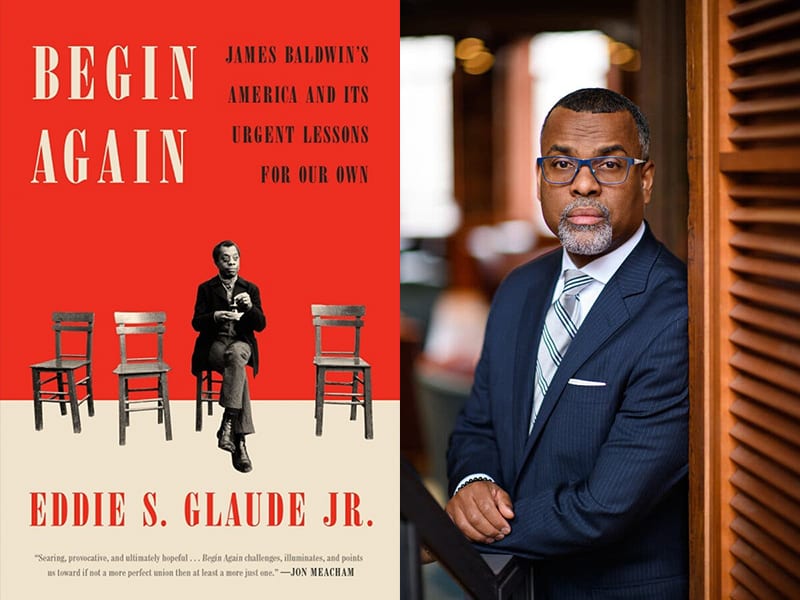Eddie S. Glaude, Jr. is the James S. McDonnell Distinguished University Professor and chair of the Department of African American Studies. His latest book is Begin Again: James Baldwin’s America and Its Urgent Lessons for Our Own, 1963-1972, published by Penguin Random House in June, 2020.
How did you get the idea for this project?
I have been thinking with James Baldwin for close to thirty years. In fact, his writing has shaped much of my scholarly work. I also wanted to write about his later works. But it was the election of Donald Trump in 2016 that set the stage for the book. I had to deal with my despair and disillusionment. The country had done it again: it had turned its back on the possibility of being otherwise. I had to confront my rage and despair in order to muster the energy to keep fighting.
How has your project developed or changed throughout the research and writing process?
Initially the book was conceived as an intellectual biography of sorts, but I ran into trouble with limited archives (much of the material has been embargoed). It was only while in Heidelberg, Germany, after witnessing white police officers brutalize a black man at a train station, that the structure of the book came together. I knew that I had to write with Baldwin about our current moment. He offered resources to understand Trumpism.
Of course, writing with Baldwin affected my own writing. I decided to take more risk on the page in this book. I wasn’t beholden to an academic form; I mixed genres. Moving between past and present, history and biography, social criticism and memoir. I have to reach for a writing style that could capture the full range of my emotions.
What questions for future investigation has the project sparked?
The country feels broken. The demographic shifts are what they are. After the November election, we have to figure out what this moment has made of us. How will we respond to the moral reckoning we now confront?
Why should people read this book?
First, the book offers a rather distinctive reading of James Baldwin. In foregrounding No Name in the Street, for example, the book shines a different light on the entire body of his work. So, scholars should find something useful here. Second, the book offers a particular kind of insight for our times: a hard-nosed reading of the stakes of our current malaise and the historical failures that shape it. In the end, I want us to begin again—to reimagine the country apart from the insidious belief that white people matter more than others. Of course, our past suggests we will not do very well, but must risk everything if we are to finally make our way through this longstanding, national trauma.
Learn more about other recent publications by Princeton University faculty in the Humanities by exploring our Faculty Bookshelf.
















